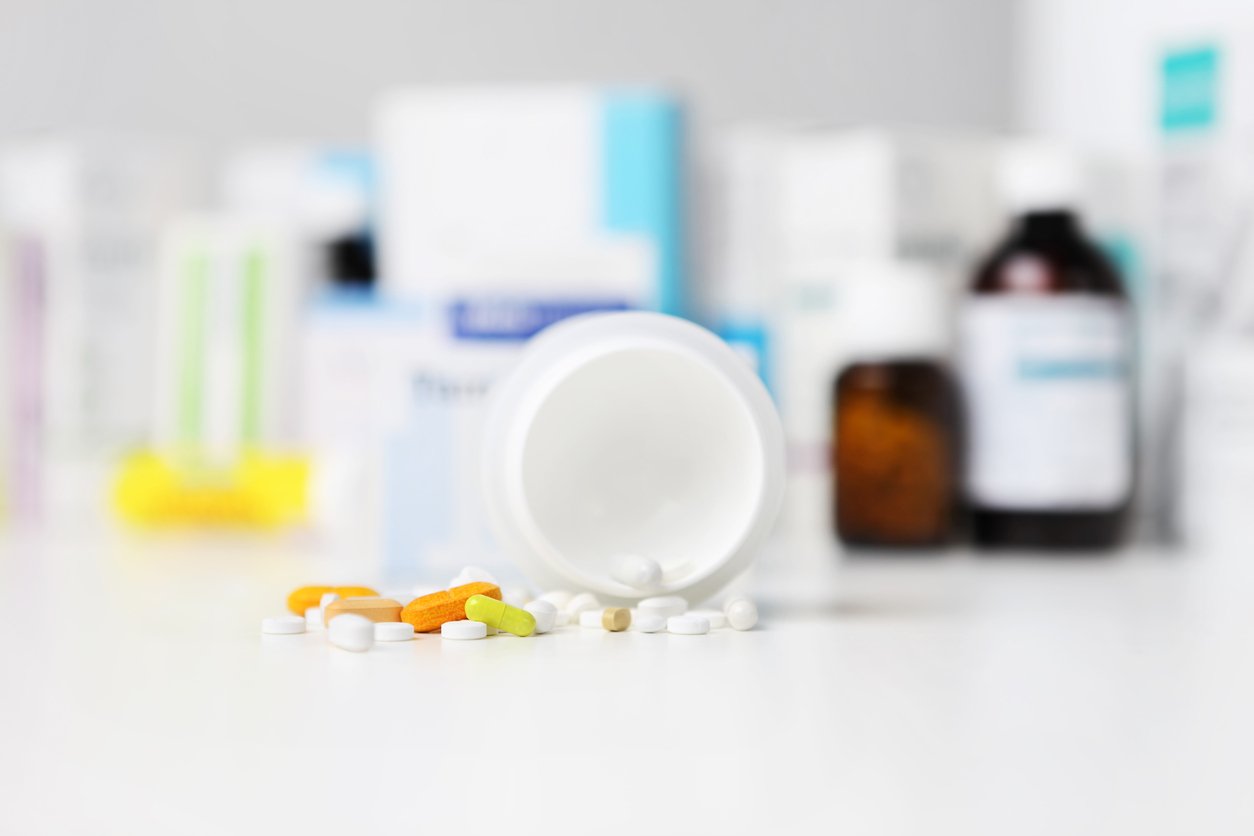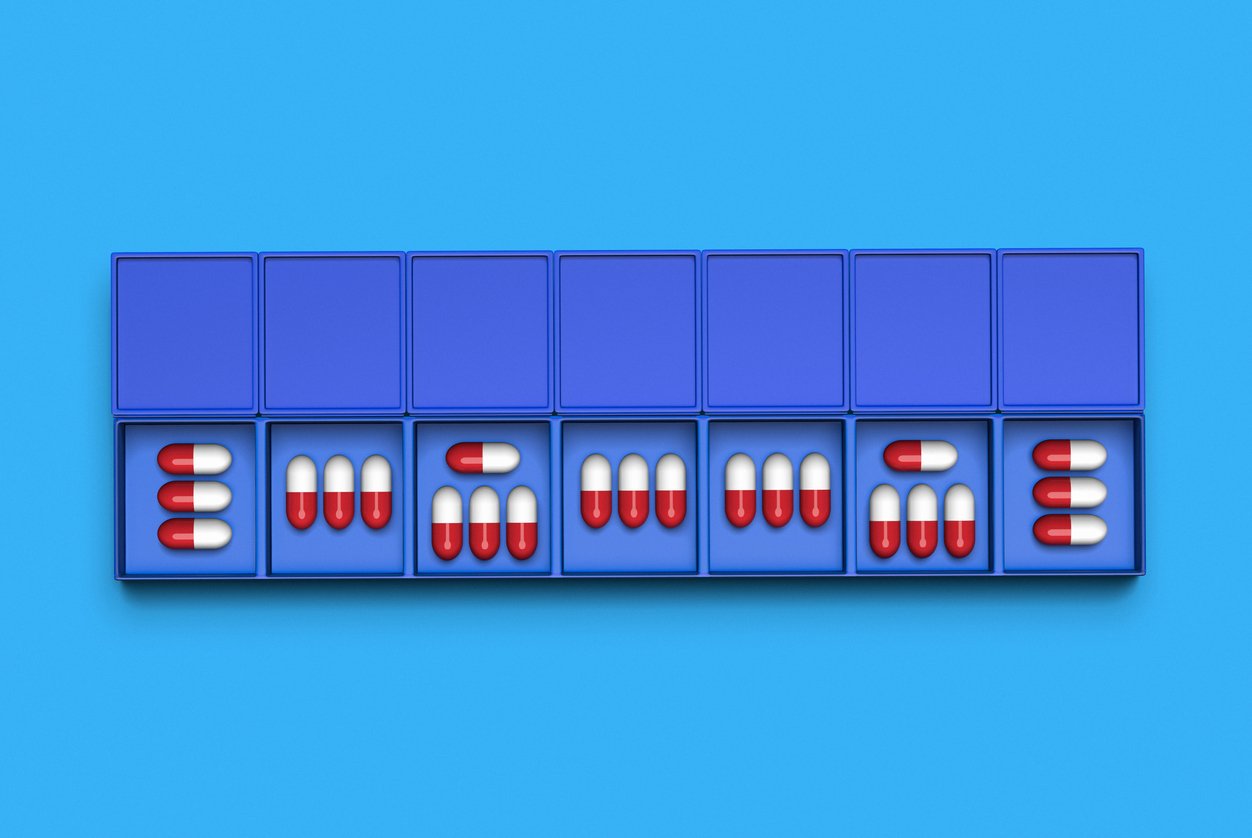Medication Errors: Reduce Your Risk with These Tips

A medication error is defined as “any preventable event that may cause or lead to inappropriate medication use or patient harm while the medication is in the control of a health care professional, patient or consumer” by the National Coordinating Council for Medication Error Reporting and Prevention.
There have been many recent studies focusing on the prevalence of medication errors and the impact it has on our communities. According to Consumer Report magazine, Americans make more than 500,000 medication mistakes a year and that at least 90,000 life-threatening or fatal events occur because of medication errors that happen at home.
Although this information and data can make a patient uneasy, the good news is that almost all medication errors can be prevented. IWP puts patient safety ahead of everything. To help you, we've created a comprehensive guide for safely dealing with medications. Listed below are a variety of ways you can take an active role in your health care or that of a loved one and protect against possible medication errors.
Ask the Important Questions
When starting a new prescription therapy, it is recommended to discuss important information with either your health care provider or pharmacist to ensure you get the maximum benefit with no adverse effects. Listed below are a set of questions to review with either of them to make sure you are properly prepared to start the therapy.
- What is the brand or generic name of the medication?
- What is the medication supposed to do?
- How long will it be until I see results?
- What is the dose?
- How long should I take it?
- What should I do if I miss a dose?
- What should I do if I accidentally take more than the recommended dose?
- Are there any foods, drinks, other medications, or activities I should avoid while taking this medicine?
- What are the possible side effects & what should I do if they occur?
Check Your Prescription for Errors
Even the most talented and competent health care provider or pharmacist can fall victim to a medication error. As prescribers move to telehealth with prescription orders being transmitted electronically, things can get lost in transmission. A patient should be on the lookout for the wrong drug, the wrong dose, or the wrong form of their medication when they receive their bottle or package. If the physician has handed you a prescription, then review the sheet prior to leaving the office to confirm that everything appears as discussed. When you have the prescription filled at the pharmacy, read the label to ensure the doctor ordered it properly. For a refill, open the container to ensure the medication has the same appearance as you have been taking previously.
The Dos & Don’ts of Dosing

Do Take Your Medication at the Same Time Every Day Patients are always recommended to take their medication at the same time each day because when doses are taken too close together, it can cause an adverse effect due to an abundance of medication in their body. If a patient waits too long between doses of their medication, then it can result in the body not having enough of the medication present to provide therapeutic relief.
Do Understand What to Do If You Miss a Dose Patients should always remember if they ever miss a dose and are unclear on what to do next, then they can reach out to their pharmacist for clarification. Pharmacists can guide you and help get you back on track! Some easy ways to help you know that you have taken your dose for the day are to mark a calendar or notebook, use a phone app to set an alarm, or organize your pills into a weekly or monthly pill box.
Do Not Stop Cold Turkey Always take your medication as prescribed and discuss stopping with your physician before you discontinue a therapy. Often patients will say they feel better and abruptly stop a medication. However, this can increase their likelihood of experiencing adverse effects. If the cost of a medication is an issue, then discuss with your physician or pharmacist if there are ways to assist, such as copay savings cards from manufacturers or another alternative.
Do Not Take More or Less Than Discussed with Physician It is very important to always take the correct dosage of medication that is prescribed by your health care provider. Taking too much of your medication can, depending on the type of medication, result in a patient suffering from adverse effects. In the worst case, a patient can potentially suffer from an overdose, which is the leading cause of medication related fatalities.
Follow the Directions Properly Half of the drugs for high blood pressure, type 2 diabetes, and other long-term conditions are not taken as directed by doctors. Keep a list of all your prescriptions and over-the-counter drugs and make it a habit to take them at the same time each day if possible. If you still forget, use a pillbox with the days of the week, and put it on the kitchen counter or somewhere you cannot miss.
Do Not Overuse, Especially with Opioids! One in 5 people take more than the recommended dose of common non-steroidal anti-inflammatories (NSAIDs), like ibuprofen or naproxen. Almost 25% of people mix two or more NSAIDs at a time. That can damage your liver or kidneys, or cause bleeding inside your body. Stick to doses on the label. For kids, base the dosage on their weight, not their age.
Pay Attention to Your Mood More than 200 drugs, including birth control pills, blood pressure medication, and heartburn relievers, have possible side effects that include depression or thoughts of suicide. If you notice such symptoms or feel down for more than a couple of weeks, then ask your doctor if one of your drugs might be the culprit. Sometimes you might be able to lower your dose or try a different class of medication.
Continued Use of Medications That Should Have Been Discontinued With a variety of conditions that patients experience, such as allergies, blood pressure maintenance or pain medications, it is understandable that patients lose track of the medications, vitamins and supplements they are currently using. If you take any prescription or over-the-counter drugs or supplements regularly, then go over your lineup every year with your doctor or pharmacist. You may no longer need to take some of them, or they might not mix well with your other medications. This is especially true if you are older and are on several different medicines.
Splitting, Crushing, or Chewing your Medication Splitting a medication should only be done when it is advised by a health care provider or pharmacist that this is safe to do. Some medications are intended to only be taken whole, as these medications are often coated to either delay the release of the medicine or protect the stomach. If the medication is intended to be split, then it is recommended that a patient purchase a pill splitter to get an accurate cut. If splitting the tablet is difficult, then ask your health care provider or your pharmacist about scored tablets; these tablets have a predetermined line that allows for easy breaking in half or quarters.
Crushing a tablet is common when a patient may have difficulty swallowing; however, when a medication is crushed, it can be absorbed more quickly. This can cause a dangerous level of medication to enter the patient’s body and can increase their likelihood for adverse events. Patients should not assume that all medications can be chewed as some have been specifically designed to enter the digestive tract whole or intact. If a patient were to chew a medication that was not intended to be, then it can cause changes to how they are absorbed in the body.
Toss Leftover Prescriptions When you no longer need a medication, it is recommended to dispose of it as soon as possible so no one else can take it or misuse it. There are many methods of disposing of medication, such as mixing it with dirt, cat litter, or even used coffee grounds. It is recommended that the medication being discarded is sealed in a plastic bag with all personal information removed from the bottle or package. Keeping medications that are no longer used can cause confusion for caregivers or emergency medical responders who may be called upon to provide care. Many pharmacies and local police stations also have medication disposal bins where patients can dispose of unneeded medications.
Measuring Mistakes Patients often must measure out the dosage for liquid medications and the use of spoons from your kitchen can cause dosage errors to occur. The types of spoons used as kitchen silverware or for cooking are not designed to be accurate measuring utensils. To ensure you always get an accurate dose, ask your pharmacy for an oral dosing syringe or a dose cup (which often come with OTC medications).
Read the Medication Guide When you review your medication bottle or label, many of the dangerous interactions are notated with additional stickers that highlight the most important features of the medication. Typically, the notations made on the bottle or package will be the most important and very generalized. However, if you are looking for more information, then refer to the medication guide that comes with the medication. These medication guides are forms that review every aspect of the drug in much greater detail than could ever be shown on the medication bottle or package.
Understand How the Medication is Administered It is very important for patients to always understand how their medication is to be administered. With so many new products on the market that are being administered in ways other than simply taking by mouth, it is important to understand how to ingest your medication or where to administer it.
Some common administration mistakes are using an injection in the wrong area of the body, injecting into the wrong tissue (subcutaneously or intramuscularly), or not rotating the area of administration. Also common is confusing ear drops (otic drops) with eye drops (ophthalmic). Be sure to clarify with your health care professional or pharmacist how to properly administer your medication so you can get the maximum benefit without any unintended side effects.
In closing, always remember to ask questions or share concerns with your medical provider, pharmacist, or caregiver regarding any aspect of your health care. These tips can help to reduce the likelihood of an error to occur and empower a patient to have a greater understanding of their medication or therapy options. Always remember you, the patient, are the final line of defense against medication errors.
Other Posts You Might Be Interested In
Subscribe to email updates
Stay up-to-date on what's happening at this blog and get additional content about the benefits of subscribing.


